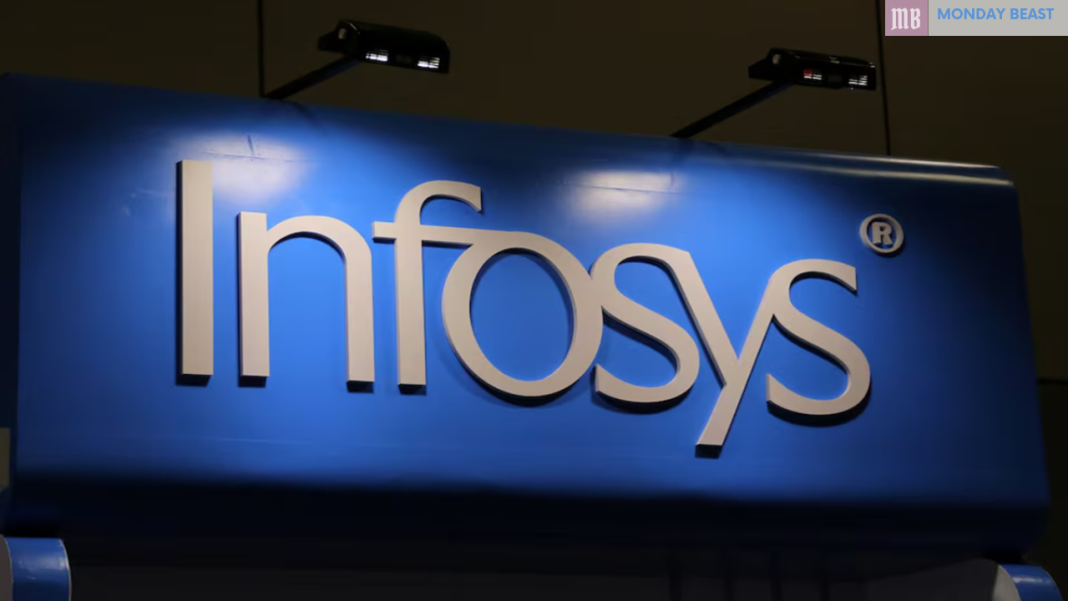In a surprising turn of events, Infosys has announced an 85% bonus for employees, marking a significant recognition of performance in a challenging industry landscape. With the tech sector shifting, how does this bold move affect employee morale and company culture? The average bonus payout comes as a relief for many, especially when contrasting it with the broader industry’s struggles.

Infosys cited a robust Q2 performance, focusing heavily on cloud and generative AI services, as the backbone for this unexpected bonus. In an email to employees, the company’s leadership emphasized the importance of their hard work and dedication. They highlighted that this payout reflects not just good numbers but also a strategic vision that could aid in keeping Infosys competitive.
The details of this bonus reveal a thoughtful approach. It targets Band 6 and below employees, essential to the company’s core operations. These junior to mid-level staff make up most of the workforce. This decision signals that the company values every team member, acknowledging their contribution to the overall success. Yet, why did Infosys opt for this route when other companies are tightening their belts?

Contrast this with what unfolded at Tata Consultancy Services (TCS), another IT giant. Reports indicate that TCS slashed variable pay for senior staff due to uncertainty in demand. While many there faced disappointing payouts, Infosys stands out like a beacon of hope. Why such disparity in treatment? Does it indicate a wider trend in how tech companies might handle employee compensation in the near future?
Infosys shared that some employees, particularly in Band 3, managed to receive bonuses as high as 100%, based on individual performance. This tailors engagements. Employees see a direct correlation between their efforts and rewards. Strong performance translates to tangible benefits, which can motivate individuals to excel further.

Looking at the figures, Infosys reported a 2.2% sequential increase in net profit for Q2FY25, amounting to ₹6,506 crore. All while revenue climbed by 4.2% to ₹40,986 crore. This growth offers insights into the company’s resilience and ability to adapt in a fluctuating market.
What’s fascinating is the upward revision of FY25 revenue growth guidance, now pegged at 3.75-4.5%. This was previously set lower, at 3-4%. It suggests that Infosys might still be able to navigate through the storm and emerge stronger. But can this positive outlook sustain amid a landscape where competitors are cutting back?
In contrast to their peers, Infosys hasn’t tied bonuses to strict work-from-office mandates. Their policy is more flexible, requiring only select employees to work in-office for a minimum of ten days each month. This could be a significant factor in maintaining employee satisfaction. As companies globally grapple with remote versus in-person work debates, how will this balance impact employee retention in the long run?
Additionally, sources suggest that other IT firms are also reducing variable pay for senior executives, reflecting a cautious approach. Many employees in senior roles are witnessing cuts in their variable pay, as Gaurav Vasu of Unearthinsight noted. He stated that those overseeing projects without billable hours saw reductions of 20-30% in variable pay, indicating a broader trend affecting the industry.
Such fluctuations in bonuses and pay raises can lead to uncertainty among employees. What does it mean for job security and company loyalty? As some staff at TCS received as little as 20-40%, despite strict policies, the implications are deep-seated. Could there be a ripple effect across the tech landscape, shaping how employees perceive these companies?
Ultimately, the decisions made by Infosys could set a standard in the industry. As competition continues to intensify, will other firms look to Infosys as a model? As they thrive and nurture their talent, how will that affect employee engagement? The hope is that their approach fosters a motivated workforce, ready to tackle challenges ahead.




